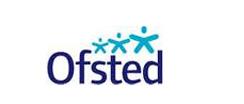Ofsted Subject Reports 1998-99: Primary Science
This report from Ofsted is one of a series that were published annually in association with the Annual Report of Her Majesty's Chief Inspector. The report gives the main findings of Ofsted concerning the state of science education for students aged from 3-11 (primary).
The evidence base, which the report is based upon, includes data gathered through the Section 10 inspection of Schools, which involved science specific inspectors gathering evidence and writing subject specific sections of the report.
The evidence base also included data from subject specific inspection of a sample of primary schools.
The 1998-99 report gives a range of findings including:
• Progress in science has been very good. Able students are often insufficiently challenged at Key StageOne. At Key Stage Two students are often not given the opportunity to attain the higher levels of which they are capable in Experimental and Investigative Science
.
• Teaching has improved slightly in both Key Stages One and Two. Teachers’ expectations at the start of Key Stage Two are often too low for abler students. They are not sufficiently challenged to provide their own explanations for observations or make generalisations about phenomena.
• Revision in Year Six. Teaching over the last year has been that it is increasingly taught for relatively short periods of time, commonly afternoon sessions.
• Many teachers have transferred classroom techniques successfully from the literacy and numeracy strategies to science. Some science activities do not, however, make sufficient demands on pupils’ abilities to record information or manipulate data.
• Worksheets are sometimes structured so that they do not require students to record and select their own observations or think about patterns in data.
• Teachers’ knowledge of science has improved considerably over the last few years and has led to improvements in standards. Professional development in science needs, once again, to be given priority by schools and Local Education Authorities.
• The science curriculum remains broad and balanced in the large majority of primary schools. Curriculum planning in science has improved. Written assessment is used increasingly at Key Stage Two, often in preparation for national tests.
• Good leadership continues to be a powerful influence on the quality of teaching and standards achieved in primary schools.
Show health and safety information
Please be aware that resources have been published on the website in the form that they were originally supplied. This means that procedures reflect general practice and standards applicable at the time resources were produced and cannot be assumed to be acceptable today. Website users are fully responsible for ensuring that any activity, including practical work, which they carry out is in accordance with current regulations related to health and safety and that an appropriate risk assessment has been carried out.
Downloads
-
Primary science report: 1998-99 19.04 KB





